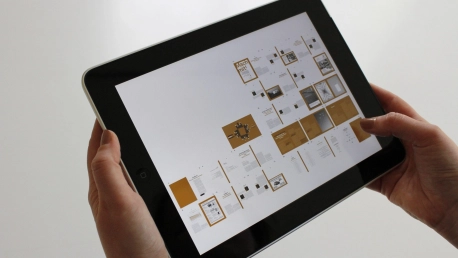We live in a connected world—at least when it comes to digital devices, technology, and smart solutions. The Internet of Things (IoT) is becoming a culture set to revolutionize our perspective of the modern world. Although IoT has already impacted the lives of a lot of people, it is expected to evolve into an even bigger trend that will completely transform the way we work and experience the world.
This article delves into the evolution of IoT in the context of an increasingly dynamic digital environment and explores its critical impact in the years to come.
1. The Capabilities of Artificial Intelligence to Expand
Machine learning is said to become the new normal in the next decades, although some skeptics criticize its use in the long term. Machine learning already plays an important role in many fields and it is expected to gain even more momentum and develop into a necessity, not only in job-related environments but also in our everyday lives.
AI-driven systems are already beating humans at chess or other trivia. This might not have an obvious business application, but the same qualities can be translated into professional realms and provide additional value for businesses.
Once you add AI to the IoT, it means that the devices can act on the data they collect without requiring human intervention. This implies that they are equipped to analyze the data and make decisions, thus driving efficiency and effectiveness. The data analysis process also later transforms into business insights that help drive better decision-making.
2. The Number of IoT Devices Is Expected to Grow
In 2016, more than 4.7 billion data and devices were connected to the internet, according to IOT Analytics. Five years later, in 2021, this number will be doubled, with nearly 11.6 billion existing IoT devices. At this rate, the total number is expected to reach 21 billion by 2025 and it includes machines, sensors, and cameras.
With an increasing number of devices, the amount of data generated by them is also expected to grow. Once the data is captured and processed, it promises to create additional value for industries, governments, and individuals’ lives.
3. 5G Networks will contribute even more to the IoT expansion
5G promises to deliver greater capabilities in the near future, greater speed, and increased connection abilities that allow smart devices to be connected at the same time without compromising other operational values.
What do faster networks mean? In short: high-quality performance. All the data gathered by smart devices will be organized and managed with increased performance capabilities, which leads to IoT innovation and a much higher demand for new products.
“I don’t think the progression of the Internet of Things is gonna be linear,” said Kevin Ashton, who invented the term Internet of Things in 1999. “We’re gonna see more and more Internet of Things, applications, more and more Internet of Things value every year. So, although we’re 17 years in, we’re not 17% done yet.”
4. Routers Will Become Smarter and More Secure
Very often, security is not on top of the list for IoT manufacturers. They focus on bringing their IoT products to market as soon as possible and their security strategies are left behind. That’s why routers are so important for bridging the gap between functionality and security. They provide protection at the entry point of each of your connected devices so that you can enjoy the true power of IoT without worrying about how you’re going to secure them.
Understanding the vital role of routers in securing connected devices makes it easier to predict its prosperous future in this field, with many upgrades already happening to boost routers’ security capabilities.
5. Gearing Up for the Arrival of Smart Cars
5G will also transform the auto industry. Driverless cars will develop at a much higher rate leveraging the faster movement of data. New cars will connect with other IoT devices easier and more securely. SF movies are not so far away from reality anymore, are they?
In addition to this, the data generated by the IoT can be used by automotive companies to analyze the vehicles’ performance and obtain insights into the way drivers use their cars. This is expected to increase safety on the roads and the overall quality of the vehicles.
Conclusion
Experts say that IoT will become an indispensable part of our lives in the future. For businesses mostly, what makes IoT so valuable is their capability to deliver automatic access to real-time data whenever you need it. Now it may sound like wishful thinking, but in the future data will become ever-present and invisible, transforming business models and operational strategies.
“The Internet will disappear. There will be so many IP addresses, so many devices, sensors, things that you are wearing, things that you are interacting with, that you won’t even sense it. It will be part of your presence all the time. Imagine you walk into a room, and the room is dynamic. And with your permission and all of that, you are interacting with the things going on in the room.” — Eric Schmidt, Google chairman









